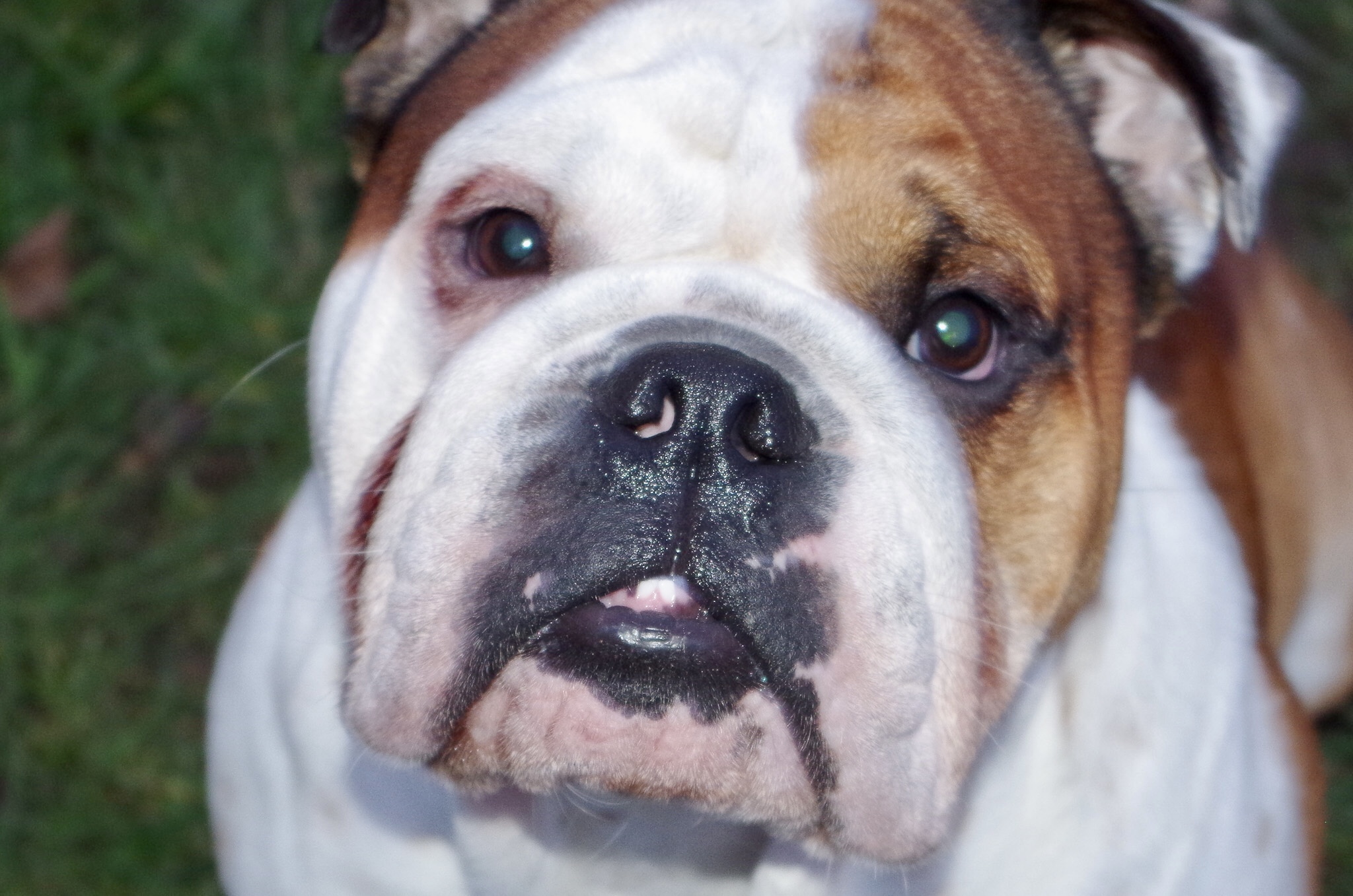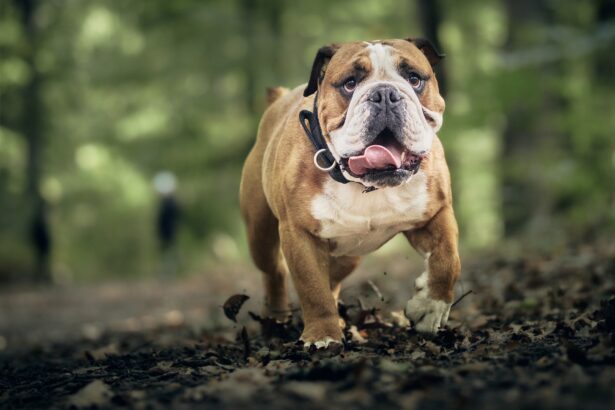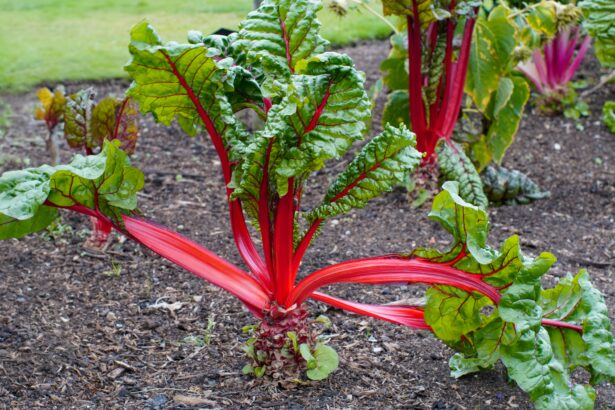Frank the Bulldog has an annoying habit of ignoring the many water bowls that are scattered around the home, all with fresh, clean drinking water, and heading straight for the dirty puddle in the garden instead. Is it safe for a bulldog to drink out of puddles, though? It’s a question that you might find yourself asking, so let’s get the answers.
Why does my bulldog drink from puddles and not a water bowl?
Despite being domesticated for around five hundred years (and dogs, generally, for two thousand,) bulldogs and other doggo breeds can still retain some of their natural, wild instincts – and this could be the biggest reason why your bulldog chooses to drink from a dirty puddle instead of clean water in their bowl.
There are other reasons why your bulldog might not want to drink out of their water bowl, though. Why don’t we take a closer look at them?
Disliking the water bowl
Does your bulldog have a metal bowl to drink out of? Perhaps they don’t like the texture of the metal. Try switching it with a ceramic one – or vice versa.
Some pets, dogs as well as cats, prefer running water to still water in a bowl. You could try a water fountain for dogs, which constantly runs and filters the water to ensure it is fresh, clean, and running rather than still.
Water isn’t fresh enough
How often do you change the water in your bulldog’s water bowl? You should pour out the old water and replace it with fresh, new, clean water at least once per day. If you’re already doing this and your bulldog still doesn’t like the water, try replacing it more frequently – twice per day, for example.
Dirty bowl
Would you like to drink your water out of a dirty glass? No? Maybe your doggo doesn’t like drinking out of a dirty water bowl!
When you don’t clean your bulldog’s water bowl frequently enough, the water and bowl will get grubby with bacteria and other things that you cannot sea with the naked eye. They will make the water taste and/or smell unappealing for your pup, though.
Make sure you clean your dog’s water bowl regularly and properly, rinsing it afterwards to ensure no cleaning products remain.
Is it safe for a bulldog to drink out of puddles?
This question is hotly debated. Is it safe? Generally, yes-ish. Can puddling drinking make your bulldog sick? Also, yes.
In the same ways that humans can get sick from drinking out of puddles or other bodies of unsafe water, dogs can get sick from a whole host of bugs – but that’s not all. Chemicals can be found on the ground, in groundwater, from cars, from business and houses, and so much more. This can include things like antifreeze, which is deadly to dogs even in very small amounts.
Why don’t we take a closer look at the potential dangers in puddle water – and how they could potentially harm your four-legged friends.
Cryptosporidiosis
Cryptosporidiosis is a gastro-intestinal infection that can affect not just your bulldog, but also the human members of your household. It is caused by Cryptosporidium – tiny, microscopic bugs that aren’t bacterium, viruses, fungus, worm, etc.
It’s a parasite – a “one-celled parasite,” to be precise, according to VCA Animal Hospitals.
Healthy dogs don’t tend to experience symptoms once they’re infected with the parasite, which can be picked up through contaminated surfaces, water, soil, food, and animal poop; but young pups, senior dogs, and dogs with already compromised immune systems can develop issues such as watery poop, severe weight loss, and no appetite.
In severe cases, with poorly pups, Cryptosporidiosis can be fatal.
Escherichia coli
Known as E. coli, the bacteria can affect puppies, immunocompromised, and elderly dogs the most – and it can cause problems with any part of the body. Adult dogs tend to experience infections of the urinary tract, but it can quickly turn into life-threatening sepsis in puppies and already-poorly dogs.
Usually found in raw meat, E. coli can be transferred by contaminated water sources. One Canadian study showed that the bacteria can survive for between one and ten weeks in “natural surface waters,” between the temperatures 14°C and 20°C.
Giardia
Giardia is another parasite that spreads via contaminated water, surfaces, soil, and poop, and it can cause chronic, constant diarrhoea. If it isn’t treated in time, that diarrhoea can quickly lead to dehydration, malnutrition, weight loss, organ failure, and, in severe or long-untreated cases, even death.
Although it is unlikely, you can contract giardia from dogs and cats that have been infected themselves. The parasite can also last for “several months” in both soil and water, according to CDC.
Alongside a very upset stomach, giardia can also cause the following symptoms in your bulldog:
- Vomiting
- Increased gas
- Visible signs or sounds of pain – whining, pacing, etc.
- Not eating (often due to nausea)
Some dogs can become infected with giardia and show no symptoms whatsoever, and the same applies to cats, humans, and other animals.
Leptospira
More commonly affecting dogs than cats, leptospirosis, caused by Leptospira, is a bacterial infection that is spread by way of urine passed by infected hosts. Water sources, soil, food, and much more can become contaminated – there just needs to be the smallest contact between an infected host (such as a mouse or rat) and the water/soil/surface/etc.
Perhaps the worst thing about leptospirosis is that it closely mimics the symptoms of several other medical conditions in bulldogs, which can make it harder to diagnose and, in turn, treat.
Some dogs get multiple symptoms; others get none at all.
The most common symptoms of leptospirosis in bulldogs include:
- Drinking more
- Urinating more
- High temperature (fever)
- Diarrhoea
- No interest in food, treats, or human food
- Increased tiredness/sleeping
- Yellowing of skin and eye colour, known as jaundice
- Stiff limbs or muscles
- Mobility issues
- Snappy behaviour, indicating pain
- Unusual antisocial behaviour
Antifreeze
We’ve already mentioned antifreeze, but it’s vital that you understand just how dangerous this household chemical can be to your four-legged friends. Everyone who has a car probably has or has had antifreeze in the home, and it not only has a sweet, attractive taste, but also a sweet and attractive scent.
Ethylene glycol is the ingredient of antifreeze that is poisonous to dogs, cats, other animals, and even humans.
Even a small amount – three to four teaspoons – can be deadly to your bulldog, according to MSD Veterinary Manual.
In cats, one to two teaspoons is enough to be fatal.
Insecticides
Several types of insecticides are hazardous to pets and wildlife, particularly when they run off into water sources – which can, of course, include standing and temporary water, including puddles.
Salt
Salt (grit) is used to make roads less slippery and dangerous in icy, winter weather – but that salt can easily dissolve in puddles and other smaller bodies of water.
Large amounts of salt is toxic to bulldogs (and all dogs) as well as cats and other animals, and as many as fifty percent of all salt toxicity cases in cats/dogs can be fatal.
Other things often found in puddle water include:
- Petrol
- Diesel
- Motor oil
- Crude oil
How to stop a bulldog drinking out of puddles
If you see your bulldog drinking out of a puddle, physically stop them. That’s not always easy, admittedly, but try putting yourself in the way of the puddle so your doggo can’t physically get to it.
Next, direct your bulldog to a source of fresh, clean, suitable drinking water, such as their water bowl.
Do not hit or raise your voice at your bulldog. This will create an environment of fear, and your poor pet will exhibit more bad behavioural signs as a result.
Prevent access to the puddle(s) if your bulldog will not strop drinking from them.
Seek veterinary advice if your bulldog suddenly switches behaviour, such as refusing to drink out of a bowl suddenly. It could be the case that your bulldog has a health concern or condition that is making the drinking experience painful or unpleasant in some way.
Summary: Is it safe for a bulldog to drink out of puddles?
It is not safe for your bulldog to drink out of puddles.
Chances are, your bully will be absolutely fine if they slurp from a puddle on one or two occasions, but it takes just one bug for your home to become a huge doggy litter box… and to spread it to the rest of the home, too.
Fresh, clean drinking water is always going to best for your bully!



